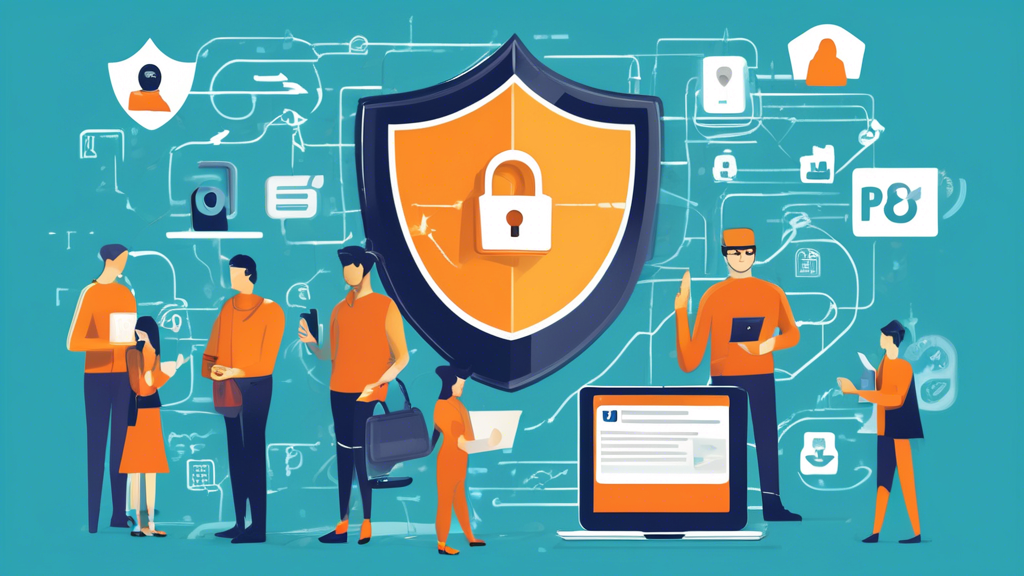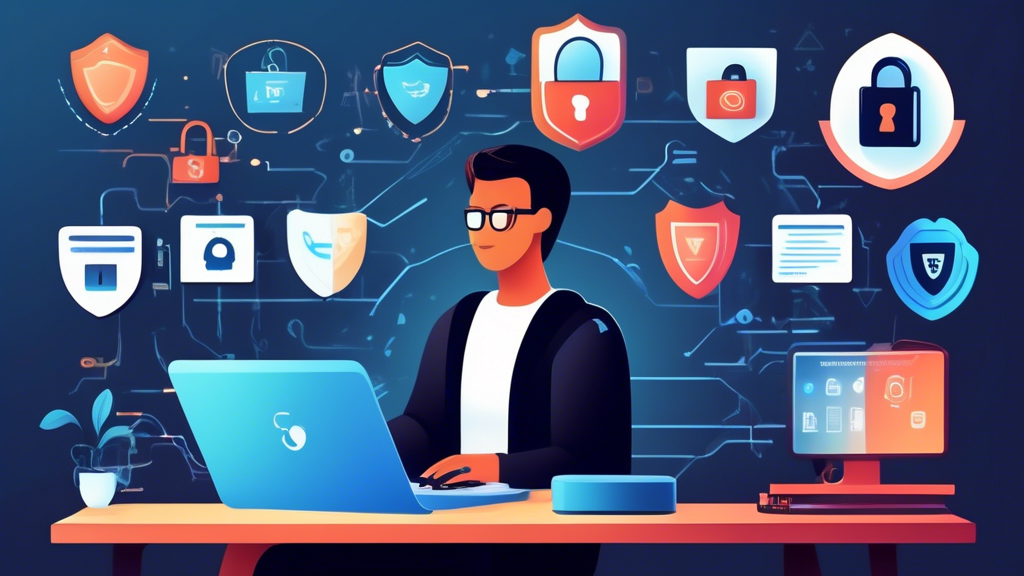Introduction to Privacy Policies for Online Stores
Understanding the Importance of a Privacy Policy
In the rapidly growing world of e-commerce, having a comprehensive and transparent privacy policy is a cornerstone of building trust with your customers. A well-crafted sample of privacy policy for online store outlines the ways you manage and protect customer data, setting the tone for a secure shopping experience. It not only reassures customers that their personal information is in safe hands but also demonstrates your commitment to ethical business practices.
Legal Requirements and Benefits for E-Commerce
Adhering to legal requirements is paramount for any online business. Various laws, such as the General Data Protection Regulation (GDPR) in Europe and the California Consumer Privacy Act (CCPA) in the United States, mandate clear disclosure on how customer data is collected, used, and protected. By implementing a robust sample of privacy policy for online store, you not only comply with these laws but also protect your business from potential legal issues. Additionally, a transparent privacy policy can enhance customer loyalty, reduce bounce rates, and build a strong, trustworthy brand image, ultimately contributing to your store’s success.
Introduction to Privacy Policies for Online Stores
Understanding the Importance of a Privacy Policy
In today’s digital age, privacy concerns are at the forefront of consumers’ minds. When shopping online, customers share a wide range of personal information—from names and addresses to payment details. This sensitive data needs proper handling to protect customers’ privacy rights and build trust. As a result, a well-crafted privacy policy is not just a legal requirement but also a crucial element in fostering customer confidence in your online store.
A privacy policy is essentially a document that outlines how your online store collects, uses, and protects user information. It also explains the steps you take to secure customer data and details the rights of your users. Offering a transparent and comprehensive privacy policy can significantly enhance your store’s credibility and ensure compliance with various legal regulations, effectively reducing the risk of legal penalties.
Legal Requirements and Benefits for E-Commerce
Every online store must comply with a multitude of legal requirements concerning data protection and privacy. These legal frameworks vary by region but have a common goal: to safeguard consumer information. For instance, in Europe, the General Data Protection Regulation (GDPR) mandates stringent measures for data security and privacy. In the United States, the California Consumer Privacy Act (CCPA) has set standards for how businesses should manage consumer data.
Failure to comply with these regulations can result in hefty fines and legal consequences, not to mention significant reputational damage. A sample of privacy policy for online stores should explicitly state how your business adheres to these laws, reassuring your customers that their data is managed responsibly. Moreover, a thorough privacy policy not only protects you from legal ramifications but also enhances customer trust. Consumers are more likely to engage with brands that demonstrate transparency and a commitment to safeguarding their personal information.
An effective privacy policy provides numerous benefits beyond legal compliance. It can serve as a marketing tool, emphasizing your commitment to privacy and data protection. By openly addressing how your online store handles customer data, you create an environment of trust and security. This transparency can lead to increased customer loyalty, repeat purchases, and positive word-of-mouth referrals.
Additionally, a privacy policy can help you manage customer expectations. It informs users about the types of data collected, the purposes for which it’s used, and how it will be protected. This clarity can reduce customer inquiries and complaints about data handling, thereby improving your overall customer experience.
In summary, understanding the importance of a privacy policy and the legal requirements associated with data protection is crucial for any online store. A comprehensive sample of privacy policy for your online store not only ensures compliance with legal standards but also builds a foundation of trust and reliability with your customers. This introductory step sets the stage for delving into the essential components and best practices for drafting an effective privacy policy in the subsequent sections.
Essential Components of a Sample Privacy Policy for Online Stores
Data Collection: What You Need to Know
When creating a sample of privacy policy for your online store, the first critical section to consider is data collection. Clearly identifying what types of data you collect from your users will help you construct a transparent and effective privacy policy. Customers want to know exactly what information you are collecting about them. Common types of data include names, email addresses, phone numbers, physical addresses, payment information, and even behavioral data such as browsing patterns and purchase history.
Start by outlining all the types of data your online store collects, and be specific. For example, if you collect payment information, specify whether this includes credit card numbers, expiration dates, and CVV codes. If you use cookies to track user behavior, explain what kind of data these cookies gather and for what purpose.
Here’s an example of how to phrase it in your privacy policy:
We collect personal information that you voluntarily provide to us when registering on the website, expressing an interest in obtaining information about us or our products and services, when participating in activities on the website or otherwise contacting us. This can include your name, email address, phone number, and payment information.
How Your Online Store Uses and Protects Customer Data
The next section of your sample privacy policy should focus on how your online store uses and protects customer data. Clearly articulate the purposes for which you use the data collected. Common uses include processing transactions, sending marketing communications, improving customer service, and enhancing website functionality. Transparency in this area helps build trust with your customers.
Equally important is describing the data protection measures you have in place. Customers want reassurance that their data is secure when they do business with you. Mention the technological and organizational measures you use, such as encryption, secure sockets layer (SSL) technology, and access controls to safeguard personal information.
An example statement might look like this:
We use the information we collect or receive to facilitate account creation and login processes, fulfill and manage your orders, and send you promotional communications. We have implemented appropriate technical and organizational security measures to protect the personal information we collect and process. These measures are designed to provide a level of security appropriate to the risk of processing your personal information.
Users’ Rights: Access, Amendments, and Deletion of Data
The final essential component of your sample privacy policy is addressing users’ rights regarding their data. Customers need to know they have the right to access, amend, and request deletion of their personal information stored by your online store. This section not only ensures compliance with various data protection laws, such as the General Data Protection Regulation (GDPR) for European customers but also enhances your store’s credibility and trustworthiness.
Inform users how they can exercise these rights. Provide clear instructions on how they can request access to their data, make changes, or ask for their data to be deleted. Include contact information or a link to a designated page where users can submit their requests.
An example provision might read:
You have the right to request access to the personal data we hold about you. You also have the right to request that we correct any inaccurate personal data, complete any incomplete personal data, or delete your personal data. To exercise these rights, please contact us at [contact email/phone number]. We will respond to your request within 30 days.
In conclusion, detailing what data you collect, how you use and protect it, and what rights users have regarding their data are all critical components when drafting a sample of privacy policy for online store. By addressing these key areas comprehensively and transparently, you can build a strong privacy policy that not only complies with legal requirements but also builds trust and credibility with your customers.
Best Practices for Drafting a Sample Privacy Policy for Your Online Store
Creating a robust and effective sample of privacy policy for your online store is crucial in fostering customer trust and ensuring compliance with applicable regulations. To help you draft a comprehensive privacy policy, here are some best practices to consider:
Using Clear and Simple Language
Your privacy policy should be transparent and easily understandable. Avoid using legal jargon and complex terms that may confuse your customers. Here are some tips to achieve clarity:
- Write in plain English: Use straightforward language that your audience can easily comprehend. This helps in building trust as customers appreciate transparency and clarity.
- Be specific: Clearly define the types of data you collect, how it is used, and who has access to it. Specificity helps in eliminating ambiguities and provides a clear picture to your customers.
- Organize content logically: Structure your policy in a way that flows naturally. Use headings, subheadings, and bullet points to break down information and make it easily scannable.
- Use examples: Illustrate how data is used with real-world examples that customers can relate to. This can demystify complex processes and make your policy more relatable.
Keeping Your Privacy Policy Updated
Technology and legal requirements evolve rapidly, and so should your privacy policy. Regular updates are essential to stay compliant and relevant. Consider the following:
- Review periodically: Set a schedule for regular reviews of your privacy policy. This ensures you capture any changes in data practices or legal requirements promptly.
- Notify customers: Inform your customers whenever there are significant changes to your privacy policy. Transparency about updates reinforces trust and demonstrates your commitment to protecting their data.
- Document changes: Keep a version history or documentation of changes made to your privacy policy. This provides a clear audit trail and helps in case of any disputes or legal inquiries.
- Adapt to new laws: Stay updated with new privacy laws and regulations that may affect your business, such as the GDPR, CCPA, or other region-specific legislation. Adapt your policy accordingly to ensure compliance.
Providing Easy Access and Visibility on Your Website
Your privacy policy should be easily accessible and visible to all visitors. Burying it deep within your site can lead to customer frustration and mistrust. Ensure that:
- Visible links: Place links to your privacy policy in prominent places such as the footer of every page, the registration or checkout pages, and within account settings. This visibility ensures customers can easily find and read your policy.
- Mobile-friendly design: Ensure your privacy policy is readable on all devices, including smartphones and tablets. A responsive design guarantees that users can access and understand your policy no matter how they are browsing.
- Use pop-ups sparingly: While pop-ups can draw attention to important updates, overusing them can frustrate users. Use pop-ups judiciously and provide an easy way for customers to close them.
- Search functionality: Integrate a search function within your privacy policy page. This allows users to quickly find specific information, fostering a more user-friendly experience.
- FAQs and summaries: Consider adding a FAQ section or a summary at the beginning of your privacy policy. These can provide quick answers and overviews for customers who don’t have the time to read through the entire document.
Adhering to these best practices when creating a sample of privacy policy for your online store can significantly enhance your customers’ experience and trust. Clear language, regular updates, and easy accessibility are key components that contribute to an effective privacy policy, ensuring compliance and fostering a trustworthy relationship with your customers.
Conclusion
Drafting an effective sample of privacy policy for your online store is a crucial step in building trust with your customers and ensuring compliance with legal requirements. By understanding the importance of a privacy policy and incorporating its essential components, you can create a document that transparently communicates your data collection and protection practices.
Adopting best practices such as using clear and simple language, regularly updating your policy, and making it easily accessible on your website will further enhance the credibility and usability of your privacy policy. Remember, a well-crafted privacy policy not only protects your customers but also fortifies the reputation and integrity of your online store.
Ultimately, as data privacy concerns continue to grow, providing a comprehensive and straightforward privacy policy will help you build lasting relationships with your customers while safeguarding your business. Prioritizing transparency and compliance is key to a successful e-commerce operation.









